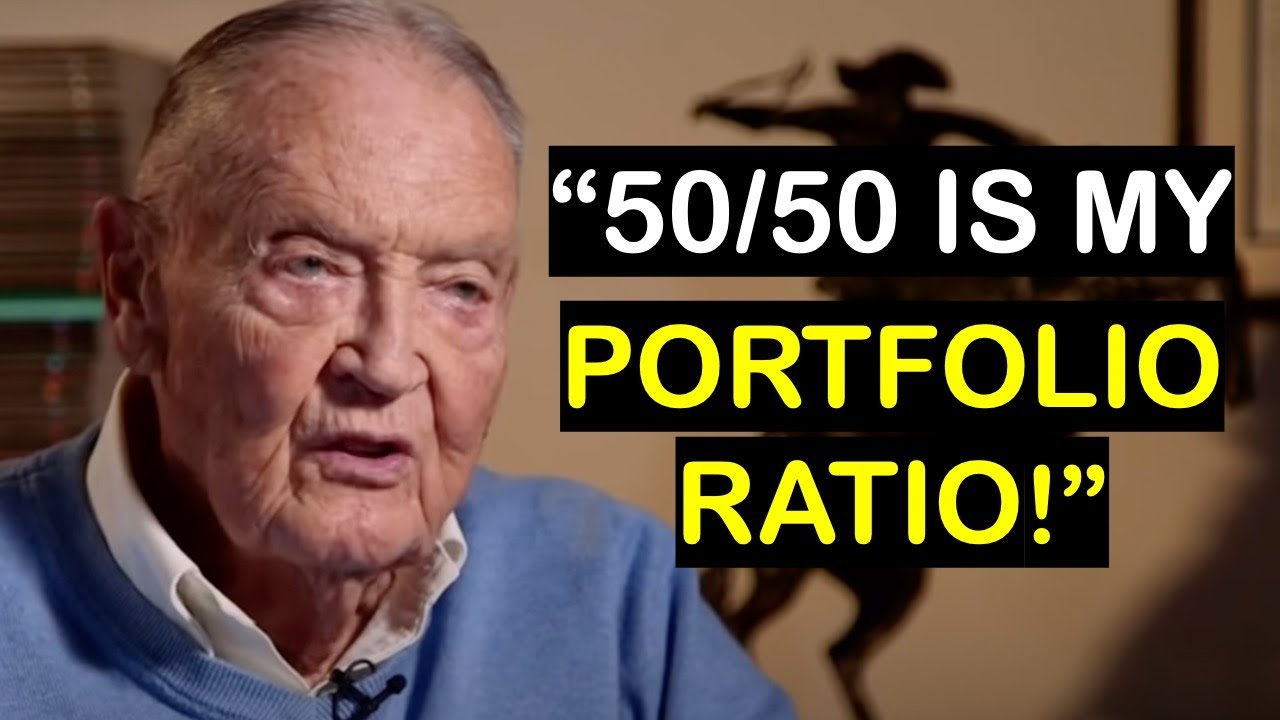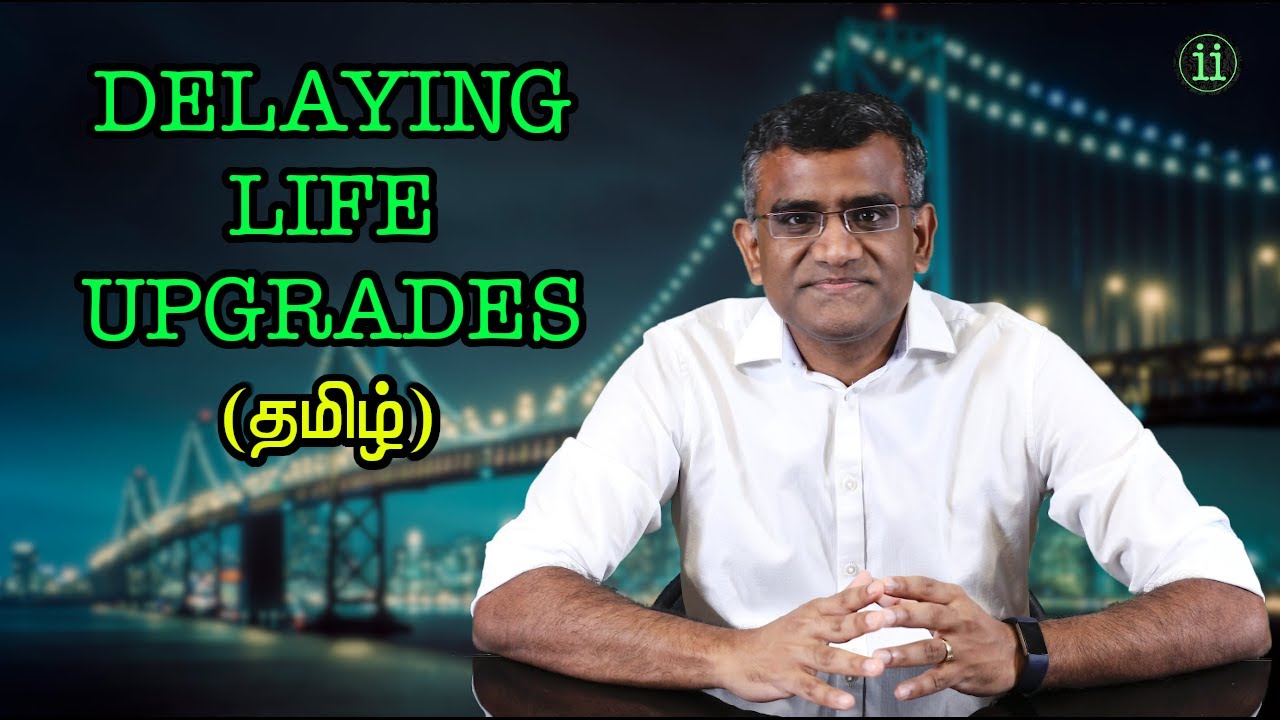Tag: best investment

How to Have the Perfect Portfolio in Investment – John Bogle’s view
Jason 0 Comments Retire Wealthy Retirement Planning
But now this brings us to the main point of
our discussion with you which is to get your advice for our viewers about what you consider
to be the perfect portfolio now we know there's no such thing as perfect but i suspect that TIFs
will play some role in this what would you say to the typical investor now today looking forward how
should we be managing our wealth well let me um i tried to cover this you'd be surprised at some of
the what i've done in the asset allocation chapter of my book a little bit because i've come to
conclusion there's really not a very good answer and i've concluded that regular rebalancing is not
terrible but not necessary i've come to conclude that it's 60%, 40% portfolio is probably the best
option rather than going from 80 20 to 20 80 in a target retirement plan uh maybe right and i may
be wrong on that and i find it something very individual uh and and you know and clearly i mean
everybody knows this intuitively at the beginning there are no easy answers to this so i'll come
to exactly what i'm doing uh but what i was what i did i got a letter from clearly a young man
who was really worried about how he should be investing and what his allocation should be and he
said you know the dangerous risky world out there and he didn't mention it but of course he's right
you have potential nuclear war global warming much more than just potential and racial division in
the country uh right now uh threats to world trade and division of wealth all over the world but
most often very heavily in the us between the haves and the have-nots all those things
are worth worrying about but i said to him you don't know and i don't know what's going to
happen to any of them the market doesn't know nobody knows so you just have to put them out of
your mind and forget it what you want to think about is how much risk you can afford and that's
very much a personal thing and it has a little bit to do with whether you're investing regularly
and things like that and then i said to him if it's helpful to you i'll tell you what i'm doing
now i'm 88 years old and have an unusual kind of planning my estate and i said i'm 50 bonds and 50
stocks i don't happen to rebalance around that it just seems to come out that way particularly in
recent years and uh it's been higher than that and been lower than that but right
now i'm very comfortable at 50 50. although i spend half my time worrying that i have
too much in stocks and the other half of my time worrying that i have too little in stock and i
think that's the way most investors feel they don't know what the right number is and when the
market's going up they say god why don't i have more stocks when it's going down so your own worst
enemy in all this yes but having some stability without automatically rebalancing i don't think
you need to do that and and it's very clear you know and anybody understanding economist
certainly understands this that the more the less you rebalance the more you're going to
have because you're always selling the better performing asset and you don't know whether it
will do in the long run but i also look at it as as very importantly uh and this is this is kind
of an interesting thing i think the most important thing you need to know about the performance
of the stock market in the next 30 40 50 years is what is the GDP of the united states going to
do corporate profits are correlated at 96 percent s p dividends are correlated at 96 percent with
with the gdp of the united states the GDP doesn't grow quite as fast but not a big difference
6.7 compared to 7.5 or something like that and then they'd be nominal and uh i think so
what interests me is in peter lynch's book something about wall street uh one up on
wall street or something he says there's no number that could interest him less than the gdp
number is it going up or down and what that is is a statement that the short term is more
important than the long term and i don't believe this the short term is more important than
long term and then you even get in freakonomics those wise guys they did a nice interview with
me i'm heard all of it yet but i will someday um say pay no attention to the GDP well it's
everything right but it's not everything today and tomorrow right you know the gdp probably
rose today about two three hundred and sixty fifths of one percent or something whatever it
is uh and uh we don't pay any attention to it but it all comes down to for your you know the
best portfolio is are you an investor or are you a speculator and if you're going to keep changing
things you were speculating because we can't know if you're going to put commodities in there the
ultimate speculation it has nothing going for it no internal rate of return no dividend yield no
earnings growth no interest coupon nothing except the hope largely vain probably that you can sell
to somebody else for more than you paid for it how that could be even considered goals
let's say an investment uh i do not know so it's i'd like to take the mystery out of it and
say that the perfect portfolio first i think for a huge proportion over 90 percent certainly of
the investors should be limited to marketable securities they don't need the liquidity today but
and we may have you know too much marketability and that is too much sensitivity to prices as they
change day by day but you want to get out of the idea that you always have to do something and uh
i have said in my books and you know something happens and the federal reserve does something
and the traders all at the beginning of the day i think it's going to cause the market to go down so
they sell and everybody else says it has nothing to do with anything for you and when you hear news
and your broker calls up and says do something just tell them my rule is don't
do something just stand there and it's it's a lot of the rules that apply
to the investment are not rules that apply to ordinary life right and uh so don't do something
just stand there so get a rough idea of what you want to allocate your money to now i i do i'm
really entirely indexed at my 50 50.

Uh although oh my and i can't give you the proportions
because i don't remember them but my bonds that are in my retirement plan are
bond index funds and the bonds that are in my my uh personal account are municipal vanguard
missile bond short intermediate and so i'm reasonably comfortable with that so i think
i'm too conservative for the average investor so i'd say the perfect portfolio and it should
be well let me just mention one other issue and try a little bit differently uh blair academy i
have a scholarship fund that i'm allowed to manage and i don't i don't want to spend any time on
and i don't so here is exactly what i've done on the assumption that nobody will touch it for
a long time and when i'm gone i mean maybe they will maybe they won't but what i did this is
probably ten years ago um we say put half of it in Wellington Fund and have it balanced index
fund the idea was not all on balance index fund because there could be things that happen that a
manager needs to adjust to neither of them have an international component and that's fine with
me that's i believe that's the better strategy so that's and they would be together 90 of the fund
and then against two contingencies um just in case i put five percent in the emerging market index
and i hope you're sitting down five percent in gold really yeah in the event just a five percent
hedge against some kind of catastrophe now i wouldn't call that the perfect portfolio but
i i mentioned only because that's one there's distinctive meaning you cannot touch it and uh at
least theoretically can't touch it it's designed to be held through all extremes and so that's
going to give you with the two balanced funds uh roughly 62 percent in equities that's going to
be with wellington fund more corporate bonds than the index fund has i think the index is something
that we should be very very careful about because it has the one of a better expression too damn
much in governments right i don't think any individual would have a a bond account 70 in
governments and 30 corps right maybe it should be the reverse i think that makes more sense can
i prove that no i'm sorry i can't so it's looking at the long term looking at the numbers looking
at cost above all there's no there's no ideal portfolio perfect portfolio that ignores cost
now you know i've seen these articles saying well for example commodities no internal rate
of return silly including gold except that's the if nobody's gonna nobody's looking and we
have something explosive that will help and it probably shouldn't hurt you too much this
portfolio actually had done rather well in the last couple of years and it's fine in the long
run and uh so you know and actually it may be doing better than my own but i don't but i look at
my performance because i'm so conservative right uh i look at i look at the funds yeah but it's
almost all indexed and i do have wellington fund from those days with Mr Morgan and i wouldn't give
that up as a sentimental matter but but i should



Recent Comments